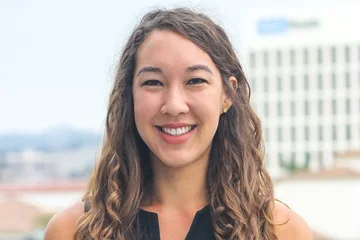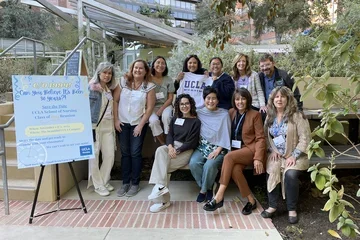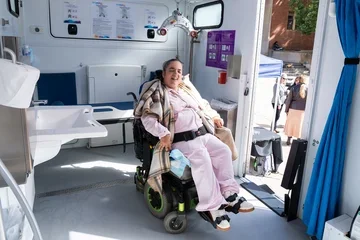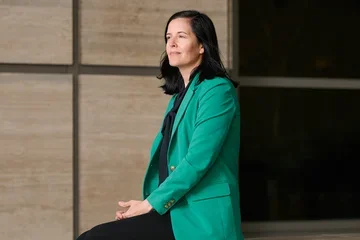Welcome New Faculty

Holli DeVon, Ph.D., RN, FAHA, FAAN
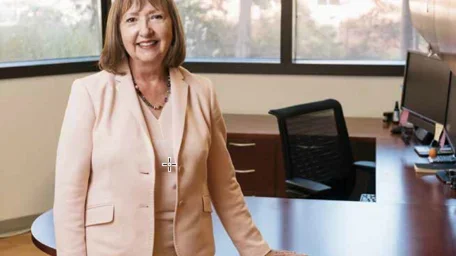
Associate Dean for Research
Dr. Holli DeVon is passionate about research, and she is excited to bring that passion to the UCLA School of Nursing as the new Associate Dean for Research.
Her interest in nursing started in high school. As a volunteer in a local hospital, she observed nurses firsthand and thought “they were some of the smartest people I had ever met. They knew so much about the causes of illness and how to help people recover.” That experience led her to Loyola University Chicago to obtain a BSN.
In her last clinical rotation, she worked in coronary care and was fascinated by electrocardiography. She wanted to know more about heart rhythms and other physiological measures and the implications on the patient’s status.
“My background was in critical care, but my first love has always been heart disease.”
When she was obtaining her master’s in nursing science, she was required to do original research. “I had a phenomenal mentor who strongly encouraged me to get a Ph.D. but family responsibilities intervened. Every year for 15 years my mentor said ‘when are you applying to the Ph.D. program?’” DeVon finally started the Ph.D. program at the University of Illinois at Chicago the same year her daughter started college.
While working as a critical care nurse, she noticed a number of differences between women and men. For example, “we were sending patients to the cath lab and many of the women had negative results while the men were coming back positive. I remembered wondering why are we sending so many women for invasive testing even though the risk was low? What might be the difference between women and men? I wanted to know so we could provide better care.”
Today, DeVon is a nationally recognized expert in cardiovascular care. Her area of interest is symptoms of ischemic heart disease. The primary focus of her program of research has been the influence of gender on symptoms during acute coronary syndromes (ACS).
In explaining her research, DeVon shared, “I developed the ACS Symptom Checklist to identify potential sex differences. Our research team has used an integrated, biobehavioral approach to advance symptom science by studying inflammatory and behavioral aspects of ischemic heart disease. An additional interest has been individuals that are vulnerable to poor health outcomes as a result of age, race/ethnicity, and/or low social status. I am also interested in research methods and measurement and have taught and published in this area.”
Her research has revealed sex and age differences in the symptoms of ACS that leave women at risk for delay in seeking treatment for symptoms, delay in diagnostic testing, and delayed treatment.
Currently, she is funded by the National Heart, Lung and Blood Institute to examine the characteristics of prehospital delay and outcomes in patients treated for potential ACS in the emergency department. “We believe our findings will aid in the development of interventions for both patients and clinicians to reduce prehospital delay for symptoms.” She is also conducting a clinical trial to test acupuncture to improve symptoms of stable angina.
DeVon believes the wonderful thing about nursing is there are so many paths you can choose from. And she has taken advantage of some exciting opportunities.
In 2017, DeVon received a Fulbright U.S. Scholar Award to study traditional and novel risk for early onset cardiovascular disease in individuals with HIV. She spent four months during the spring of 2018 in Rwanda, working with new partners to launch this research. She said the experience was “life changing.”
DeVon serves as chair of the Council for the Advancement of Nursing Science, an open membership entity of the American Academy of Nursing. In this capacity, she is committed to the development, conduct and utilization of nursing science. For the past 17 years, she has taught at the University of Illinois at Chicago School of Nursing. Most recently she headed the Biobehavioral Health Science Department.
What brings her to UCLA?
“UCLA has a strong reputation in cardiovascular research,” she said. “You have some internationally recognized researchers right here at the School and I am excited to work with them.”
DeVon is also devoted to mentoring, which will help future scholars.
“I am privileged to have mentored many pre- and postdoctoral scholars in cardiovascular disease in such areas as coronary heart disease, heart failure,atrial fibrillation, stroke, and cardiovascular risk factors,” she added. “These scholars have received many awards from NIH and I welcome new collaborative opportunities at UCLA.”
Moving forward, she hopes to inspire more nurses to get interested in research.
“We need more nurse scientists. New knowledge is vital for the profession and to improve the health of our communities. I think we need to start in middle school – explaining the multitude of opportunities in nursing. Bedside care is only one career path in nursing.
“I feel very fortunate that I’ve had such a fascinating career and that I love doing what I am doing. I am excited to go to work every single day.”
Lauren Clark, Ph.D., RN, FAAN
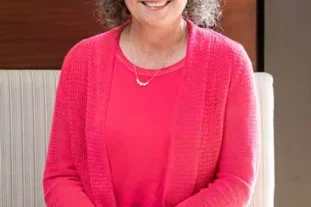
Shapiro Family Endowed Chair in Developmental Disabilities
In her research on health disparities among Mexican Americans and Mexican immigrants living in the barrios of downtown Denver, Dr. Lauren Clark noticed many parallels between the issues they faced and the challenges encountered by individuals with developmental disabilities.
There were barriers relating to access to care, issues around language and translation, anddiscrepancies in understandings about what health care was supposed to be,” says Clark. She was particularly attuned to these issues as she has a child with developmental disabilities.
Over time, Clark shifted her research to focus on maternal- child health and disabling conditions, as well as the day-to- day health experiences of adults with developmental disabilities.
Now she joins the faculty as the first recipient of the Shapiro Family Endowed Chair in Developmental Disability Studies.
“Individuals with developmental disabilities have a variety of health issues that are more serious and complex than those of the general population from the moment of birth throughout their lives,” says Dean Linda Sarna. “Because of their ‘whole person’ approach, nurses are perfectly positioned to impact their care and quality of life.”
Clark says her new position will allow for an exploration and definition of what disability studies means in nursing. “There’s lots of opportunity to think about the disability/ability context and what we can do, as nurses, to better understand that, and better care for those patients and their families.”
She also appreciates the uniqueness of the position. “This is a real gem of an opportunity to do vital work,” she says about the endowed chair. “It’s a unique niche and exceptionally rare.”
Clark comes to UCLA from the University of Utah where she held a variety of positions including Ombudsman for the University’s Health Sciences Center and Division Chair at the College of Nursing. While there, she and her team developed a new measure for health-related quality of life for people with intellectual and developmental disabilities. The tool has been used by Special Olympics International. Researchers around the world are now using the instrument and translating it into other languages, including French and Chinese.
While she looks forward to evolving the UCLA position in partnership with key stakeholders, Clark has some ideas about potential directions to pursue.
“One specific area where quality of life is an issue for people with disabilities – and one that the National Institutes of Health is focusing on – is reproductive health. Women with developmental disabilities have similar fertility rates to women without developmental disabilities, but we haven’t done much research to understand their needs regarding accessible health care, what constitutes a satisfying health care interaction, and how to facilitate their family planning goals over the life course.”
“I think the reproductive area is an area that is really interesting because we have more people entering reproductive years with developmental disabilities than ever, partly because we have more people surviving premature births,” she adds. “Better health care for children with developmental disabilities has also increased their lifespan, too, making reproductive health care a priority.
“There are lots of considerations that enter into the policy arena and into health care education. How do we train nurses and doctors to address those specific health needs and work in partnership with people with developmental disabilities to achieve quality of life and meet their reproductive goals?”
Clark also envisions establishing interdisciplinary graduate seminars around developmental disability vis-à-vis health and health care, drawing participants from a range of fields including medicine, dentistry, anthropology, design, art and architecture to look at such issues as community design, stigma, exclusion, and family health.
She spent a sabbatical at the Living with Disabilities Research Centre at La Trobe University in Melbourne, Australia. The Centre conducts social research into the lives and experiences of people living with cognitive disability with the goal of promoting their social participation and inclusion. A long-term goal of Clark’s involves exploring the possibility of creating a parallel center at UCLA and participating in bi-national research as well as student and faculty exchanges.
Her previous research includes looking at the process parents undergo when receiving prenatal or neonatal diagnostic news about having a child with developmental disabilities, and the manner in which they come to terms with that news. She has also worked with a community partner to develop and deliver a curriculum to help individuals with developmental disabilities lose weight and maintain a healthy weight.
Clark received her BS in nursing, MS in community health nursing and Ph.D. in clinical nursing research from the University of Arizona. Prior to working at the University of Utah College of Nursing, Clark was an academic program director and Associate Dean for Research at the University of Colorado Health Sciences Center. Her clinical nursing background includes providing community nursing care in an Indian health service clinic in Montana and working with Latino families in Colorado.
“I plan to build a bridge between what has been a very medicalized approach to disability and health care, and what is a more critical approach to the field. It’s a conversation about what nursing can do to actively promote self- determination and quality of life with people with developmental disabilities.”
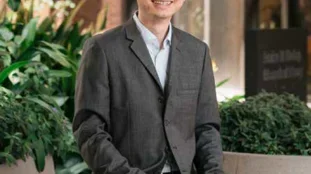
Jian Li, MD, Ph.D.
Jian Li, MD, Ph.D.
Professor
It’s the place we spend the majority of our waking hours, and it’s also the source of much of our stress. A 2017 American Psychological Association survey found that 61 percent of Americans identified work as a source of stress.
Dr. Jian Li has been looking at the psycho-physiological effects of stress in the workplace for more than a decade.
Chronic stress at work has been shown to be a risk factor for a range of diseases, including depression, cardiovascular disease and musculoskeletal disorders,” he notes in a study published in BioMed Research International.
Li’s research focuses on psychosocial work characteristics, health-related effects of work stress and interventions in the workplace.
One interventional study conducted in Germany found that stress management interventions in the workplace could reduce stress levels at work in terms of effort-reward imbalance, and improve mental health status, even seven years after the intervention.
“Because I have a medical background, I’m not just interested in subjective measures, such as questionnaire- based findings. I’m using objective, biological impacts to measure stress and health outcomes,” he says.
Li earned his MD from Tongji Medical University in Wuhan, China and his Ph.D. in Public Health from Seoul National University in Seoul, South Korea. He shares an appointment between the School of Nursing and the Department of Environmental Health Sciences, Fielding School of Public Health.
Li looks forward to teaching Occupational Health and pursuing research that will improve working conditions, particularly psychosocial working environment, in the United States. He will also compare health effects of work stress in the United States with those in Asia and Europe.
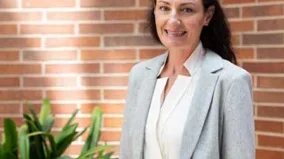
Eden Brauer, Ph.D., RN
Eden Brauer, Ph.D., RN
Assistant Professor
When she discharged her patients from the bone marrow transplant unit, Dr. Eden Brauer was excited for their return home. Leaving the unit after many weeks meant patients and their families were emerging from a dark place and moving into a brighter future.
However, over time, she came to realize that this goodbye was, in fact, only the beginning of a long climb for her oncology patients. They were facing physical and psychological problems, as well as challenges in school, work, and their social relationships. She could see there was insufficient support in place for these survivors and their families, and wanted to do something about it.
“In recent decades, we have witnessed tremendous progress in cancer care and marked improvements in survival rates, which is wonderful news. However, cancer and its treatment can leave people devastated on many levels — physically, emotionally, financially. I had this very strong sense that we have to do better. We can’t just send people home and leave them to deal with these complications on their own.”
Brauer decided to return to her alma mater, UCLA, and pursue her Ph.D. to investigate solutions to the struggles she observed at the bedside. Her graduate work focused on cancer survivorship, and her dissertation was on the challenges faced by adolescents and young adults following bone marrow transplantation for blood cancers.
“At that time, survivorship was still a new concept, especially in clinical practice,” she said.
“The question became how can we enhance quality of life for survivors through the care we provide? Now there’s recognition that symptom management, psychosocial support and long-term follow- up care must be integrated into high-quality cancer care.”
Brauer’s current research explores how clinicians might better communicate with and prepare patients for long-term toxicities related to their cancer treatment. She is also working with the Head and Neck Cancer Program at UCLA Health to establish a multidisciplinary survivorship clinic.
Brauer received her undergraduate degree from Columbia University and her Master of Science and Ph.D. in nursing from UCLA. She also completed a Postdoctoral Fellowship at the UCLA Jonsson Comprehensive Cancer Center.
“With many new treatments and better supportive care, this is an exciting time in cancer care. As a new faculty member, I hope to improve quality of life for patients with cancer and their families, both in training the next generation of nurses and in my research in the clinic.”

Kristen Choi, PhD., MS, RN
Kristen Choi, PhD., MS, RN
Assistant Professor
As a nursing student, Dr. Kristen R. Choi, found clinical nursing a source of frustration. Although she enjoyed the human element of patient care, she kept encountering health care system issues that interfered with her patients’ abilities to receive services.
“I realized early on that I wanted to be a change agent working upstream in our health care system, rather than working downstream as a clinician,” says Choi, a child/adolescent psychiatric nurse and health services researcher.
Choi looks at health service outcomes and access for children with behavioral disorders as well as how trauma and violence early in life affect children. She has developed a screening tool that, when looking at adverse childhood experiences (ACES), specifically focuses on community violence and violent events in a child’s environment.
“Once we identify ACEs in clinical settings, we need to respond to them in a trauma-informed way that meets the needs of children and their families. That includes connecting them to services that can help them heal and grow from what they’ve experienced,” she says.
Choi obtained her Bachelor of Science and doctoral degrees in nursing from the University of Michigan and her Master of Science in Health Policy & Management from the UCLA Fielding School of Public Health. She also participated in the UCLA National Clinician Scholars Program.
She was recently awarded a K12 from the Agency for Healthcare Research and Quality and the Patient-Centered Outcomes Research Institute to study health services for youth with autism spectrum disorder. She also studies secondary trauma among health care providers, ACEs, and health system factors associated with firearm violence.
“I’m excited to join the UCLA School of Nursing with a research background in behavioral health and a clinical background in psychiatric care. Mental illness, substance abuse, and violence are major public health problems, but our current service systems are not meeting the needs of communities,” she says. “Nurses are a critical stakeholder group in addressing mental health. We need leadership by nurses to find solutions.”

Kia Skrine Jeffers, Ph.D., RN, PHN
Kia Skrine Jeffers, Ph.D., RN, PHN
Assistant Professor
It’s probably safe to say that Dr. Kia Skrine Jeffers is the only faculty member at the School who is also a member of SAG-AFTRA, the Screen Actors Guild-American Federation of Television and Radio Artists. In addition to theater productions and national commercials, she’s appeared in episodes of Boston Public, The Closer and Strong Medicine.
As her performing career blossomed, Skrine Jeffers got a sudden, powerful urge to pursue medicine. Something called her to heal bodies. She looked into careers in acupuncture, chiropractic and herbal medicine, and was a successful massage therapist before enrolling in the MECN program at UCLA.
During her studies, she encountered troubling statistics about the cardiometabolic health of African Americans. “The statistics did not indicate why they fared worse, and I did not sense much urgency at the time to improve them. Health disparities felt like an accepted norm.”
Skrine Jeffers decided to pursue a Ph.D. in nursing at UCLA to better understand the nature of this problem and what could be done to combat it. Her dissertation looked at African American older adults’ experiences with structural racism and uncontrolled diabetes throughout their life courses. As a health equity researcher, she focuses on disentangling the impact of structural racism on the physical and mental health of marginalized populations.
Skrine Jeffers has also found a way to combine her passions of science and art. While she was an NCSP Scholar, she received a grant from the California Arts Council. To demonstrate the impact of the arts in research through theatre, she partnered with the UCLA Center for Health Service and Society and Healthy African American Families and wrote a play We See You, Sis.
This play, which aimed to destigmatize depression, was developed with six African American women in South Los Angeles who shared their experiences living with and seeking treatment for the condition. “Their stories showed that the historical, intergenerational, and contemporary pain that black women carry is often unrecognized and unseen,” she says.
“Our research found that this play helps make their pain and resilience more visible.” Whether addressing cardiometabolic health or bridging her science with her art, Skrine Jeffers’ vision is clear. “I’m looking forward to contributing context for the racialized disparities in health that we see, and developing creative interventions to improve them.”
